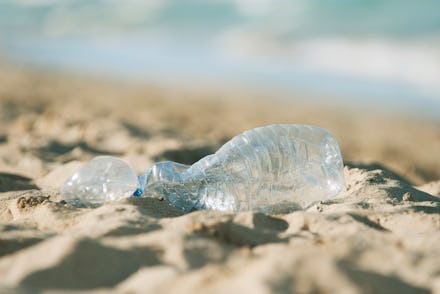Scientists Discovered a Plastic-Eating Bacteria

Plastic is a big problem. In 2010, 192 coastal countries produced plastic waste exceeding 275 million metric tons, according to a 2015 paper. Much of that ends up in waterways negatively impacting marine life.
While recycling plastic is helping to reduce overall pollution, Japanese scientists have found another way of dealing with the this kind waste: bacteria. A group of researchers out of the Department of Polymer Chemistry at Kyoto University have found a bacteria that degrades a certain type of plastic known as polyethylene terephthalate (PET), commonly used to manufacture water bottles. Their findings were recently published in the journal Science.
The bacteria, called Ideonella sakaiensis, breaks down PET using two enzymes, according to the Los Angeles Times. As the enzymes degrade the plastic, it yields carbon, which in turn fuels the bacteria's growth. Researchers discovered that if the bacteria was grown on PET and kept at a consistent temperature of 86 degrees Fahrenheit, it could decompose a thin layer of the plastic.
While the research is promising, it's difficult to say what impact, if any, its discovery will have on plastic pollution, though it's plausible bacteria could provide support for recycling businesses. In the meantime, more research needs to be conducted into other forms of bacteria that may be able to break down plastics as well as methods for how bacteria could be effectively deployed to target plastics.